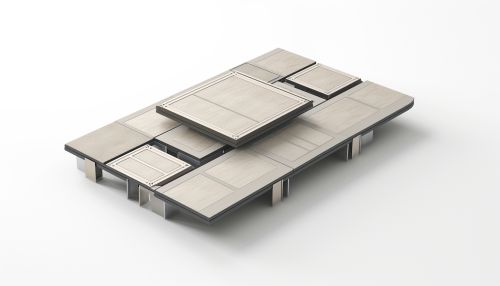Flat module
Definition
A flat module is a concept in the field of abstract algebra, specifically in the area of module theory, a branch of ring theory. A module is considered flat if the functor it represents preserves exact sequences. This property is particularly important in the study of commutative algebra and algebraic geometry.
Properties
A module M over a ring R is flat if and only if for every ideal I of R, the natural map from I to the tensor product of I and M is an isomorphism. This property can be generalized to the case where I is a finitely generated ideal.


Characterizations
There are several equivalent characterizations of flat modules. These include:
- A module M is flat if and only if for every injective module homomorphism f: N → P, the induced map f ⊗ 1M: N ⊗ M → P ⊗ M is also injective.
- A module M is flat if and only if for every finitely presented module N, the functor Hom(N, M) is exact.
- A module M is flat if and only if for every finitely generated ideal I of R, the natural map I → I ⊗ M is an isomorphism.
Examples
There are several examples of flat modules in various contexts:
- The module of all abelian groups over the ring of integers is flat. This is because the tensor product of any abelian group with the integers is isomorphic to the original group.
- If R is a field, then every R-module is flat. This is a consequence of the fact that every vector space over a field is free, and free modules are always flat.
- If R is a principal ideal domain, then every finitely generated R-module is flat. This follows from the structure theorem for finitely generated modules over a principal ideal domain.
Flatness and other properties
Flat modules have several properties that relate them to other types of modules. For example:
- Every projective module is flat. The converse is not true in general, but it is true if the ring is a principal ideal domain.
- Every free module is flat. This is a consequence of the fact that tensoring with a free module preserves exact sequences.
- If M is a flat R-module and N is a submodule of M, then N is flat if and only if it is a direct summand of M.
Applications
Flat modules are used in various areas of mathematics. In algebraic geometry, they are used to define flat morphisms, which are important in the study of schemes and their properties. In commutative algebra, flat modules are used in the study of integral extensions and going-up and going-down theorems.
